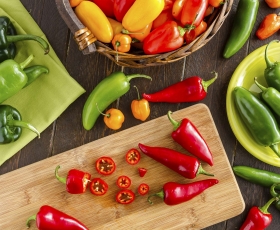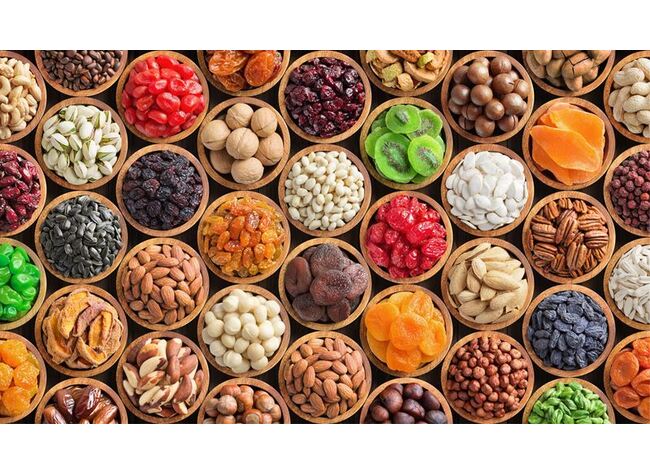Introduction
Private tag specialty foods have gained considerable popularity in recent years. Customers are significantly looking for unique and high-quality food products that deal with their certain preferences and preferences. In feedback to this need, private label food producers have become key players in the sector, offering a vast array of adjustable choices for companies and individuals alike.
The Rise of Private Label Food Manufacturers
Private tag food producers have actually seen rapid development as a result of numerous aspects. Firstly, consumers are ending up being more mindful regarding the active ingredients they eat and are looking for healthier and organic options. This shift in consumer behavior has actually prompted sellers and organizations to team up with private label food makers to develop their very own line of specialized foods.
Additionally, private label food manufacturers provide economical options for organizations looking to go into the food sector. As opposed to investing in considerable research and development or constructing their very own manufacturing facilities, businesses can leverage the experience of exclusive tag makers to bring their ideas to life.
Private Tag Food Manufacturers in Australia
Australia is home to a growing private label food production sector. With its varied farming landscape and dedication to high quality, Australian private label food suppliers have gained recognition both locally and internationally.
Private tag food manufacturers in Australia provide a considerable series of items throughout various classifications such as milk, snacks, pastry shop products, dressings, and extra. From artisanal cheeses to premium delicious chocolates, these suppliers have the ability to produce unique and top quality items tailored specifically to the requirements of organizations and individuals.
Bringing Your Ideas to Life
The journey from principle to rack includes several crucial steps that private label food manufacturers carry out with accuracy and experience. Let's check out each phase carefully:
1. Idea Development
The primary step in bringing your ideas to life is principle advancement. Private label food producers function carefully with clients to understand their vision and goals. This collaborative process helps refine the concept by incorporating market trends, customer preferences, and item specifications.
2. Recipe Creation
Once the idea is wrapped up, private label food producers begin the procedure of dish production. This includes sourcing premium active ingredients and developing dishes that straighten with the customer's demands. Whether it's a special flavor account or a specific nutritional requirement, these suppliers have the proficiency to develop recipes that meet varied needs.
3. Product Sampling and Testing
After recipe production, private label food makers create examples for client authorization. These examples undergo rigorous screening to guarantee they fulfill quality standards and preference assumptions. The client offers comments, and any kind of necessary adjustments are made to attain the preferred product.
4. Product packaging Design
Packaging plays an important duty in attracting customers and conveying brand name identification. Private label food producers team up with customers to develop packaging that is aesthetically enticing, practical, and lines up with the brand's values. From labels to packaging products, every information is thoroughly considered to develop an impactful product presentation.
5. Manufacturing and Manufacturing
Once the dish and packaging are settled, private label food producers move in the direction of manufacturing and manufacturing. They have state-of-the-art centers outfitted with sophisticated modern technology and abide by strict quality assurance actions throughout the manufacturing process. This makes certain consistency in taste, texture, and total item quality.
6. Quality Assurance
Private label food makers focus on quality assurance at every phase of production. They perform routine assessments, execute health criteria, and use strict safety and security protocols to preserve high-grade criteria. Additionally, these producers commonly hold certifications such as HACCP (Hazard Analysis Important Control Point) and GMP (Great Production Practices) to further make certain item safety and integrity.

7. Packaging and Labeling
After the production phase, private label food manufacturers proceed with product packaging and labeling the items. Each package is thoroughly examined for precision and conformity with governing standards. The labeling consists of all required information such as ingredient checklists, nutritional truths, irritant warnings, and storage space instructions.
8. Distribution and Logistics
Private tag food makers also use distribution and logistics services, making sure that the items get to the desired destinations successfully and in optimum problem. This includes handling inventory, collaborating with shipping partners, and executing durable supply chain solutions.
9. Advertising and marketing Support
To aid services do well in an open market, private label food makers commonly give advertising and marketing assistance. This might consist of assistance with branding strategies, marketing products, electronic advertising projects, and http://lorenzoxusd844.image-perth.org/snacking-revolution-the-duty-of-personal-label-junk-food-manufacturers marketing research. Such assistance aids services efficiently position their items and reach their target audience.
FAQs concerning Private Label Food Manufacturers
What are personal tag specialty foods? Personal label specialty foods describe food products manufactured by third-party firms but sold under a store or company's trademark name. These products are unique and cater to details consumer preferences.
How do private label food manufacturers differ from routine food manufacturers? Private label food manufacturers focus on developing personalized food for retailers and services. They supply a vast array of options for dish growth, product packaging design, and advertising and marketing support to satisfy the unique needs of their clients.

Can individuals team up with private label food makers to develop their own food products? Yes, private label food producers collaborate with both organizations and people to bring their concepts to life. Whether it's a brand-new product concept or a personalized recipe, these manufacturers have the competence to deal with private requirements.
Are private label food products of high quality? Yes, private label food manufacturers prioritize top quality at every phase of production. They resource costs active ingredients, adhere to strict production standards, and perform comprehensive screening to make certain high-grade products that fulfill customer expectations.
Are private label food manufacturers ecologically conscious? Numerous private label food makers are dedicated to sustainability and environmentally friendly methods. They usually make use of green product packaging materials, implement waste decrease techniques, and support local and chemical-free farming practices.
Can private label food suppliers assist organizations broaden their product range? Yes, private label food manufacturers use companies the possibility to diversify their product range without considerable investments in r & d or infrastructure. This permits organizations to accommodate evolving consumer preferences and broaden their market presence.
Conclusion
Private tag food producers play a critical role in bringing distinct and high-quality foodstuff to market. Their experience, interest to detail, and dedication to high quality make it possible for businesses and individuals alike to transform their ideas into fact. Whether it's a specialized cheese or an exquisite treat, private label food manufacturers have the ability to create products that deal with diverse preferences and choices. With their comprehensive range of services, these producers make the trip from principle to rack seamless and effective. So, if you have a dazzling idea for a food, think about collaborating with a private label food manufacturer to bring it to life.